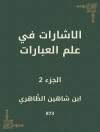This is the ideal introduction for students seeking to collect and analyze textual data from online sources. It covers the most critical issues that they must take into consideration at all stages of their research projects.
Зміст
Acknowledgments
Preface
Note to the Reader
About the Authors
PART I. FOUNDATIONS
Chapter 1. Text Mining and Text Analysis
Learning Objectives
Introduction
Six Approaches to Text Analysis
Challenges and Limitations of Using Online Data
Conclusion
Key Terms
Highlights
Review Questions
Discussion Questions
Developing a Research Proposal
Further Reading
Chapter 2. Acquiring Data
Learning Objectives
Introduction
Online Data Sources
Advantages and Limitations of Online Digital Resources for Social Science Research
Examples of Social Science Research Using Digital Data
Conclusion
Key Term
Highlights
Discussion Questions
Chapter 3. Research Ethics
Learning Objectives
Introduction
Respect for Persons, Beneficence, and Justice
Ethical Guidelines
Institutional Review Boards
Privacy
Informed Consent
Manipulation
Publishing Ethics
Conclusion
Key Terms
Highlights
Review Questions
Discussion Questions
Web Resources
Developing a Research Proposal
Further Reading
Chapter 4. The Philosophy and Logic of Text Mining
Learning Objectives
Introduction
Ontological and Epistemological Positions
Metatheory
Making Inferences
Conclusion
Key Terms
Highlights
Discussion Questions
Internet Resources
Developing a Research Proposal
Further Reading
PART II. RESEARCH DESIGN AND BASIC TOOLS
Chapter 5. Designing Your Research Project
Learning Objectives
Introduction
Critical Decisions
Idiographic and Nomothetic Research
Levels of Analysis
Qualitative, Quantitative, and Mixed Methods Research
Choosing Data
Formatting Your Data
Conclusion
Key Terms
Highlights
Review Questions
Discussion Questions
Developing a Research Proposal
Further Reading
Chapter 6. Web Scraping and Crawling
Learning Objectives
Introduction
Web Statistics
Web Crawling
Web Scraping
Software for Web Crawling and Scraping
Conclusion
Key Terms
Highlights
Discussion Questions
PART III. TEXT MINING FUNDAMENTALS
Chapter 7. Lexical Resources
Learning Objectives
Introduction
Word Net
Roget’s Thesaurus
Linguistic Inquiry and Word Count
General Inquirer
Wikipedia
Conclusion
Key Terms
Highlights
Discussion Topics
Chapter 8. Basic Text Processing
Learning Objectives
Introduction
Basic Text Processing
Language Models and Text Statistics
More Advanced Text Processing
Conclusion
Key Terms
Highlights
Discussion Topics
Chapter 9. Supervised Learning
Learning Objectives
Introduction
Feature Representation and Weighting
Supervised Learning Algorithms
Evaluation of Supervised Learning
Conclusion
Key Terms
Highlights
Discussion Topics
PART IV. TEXT ANALYSIS METHODS FROM THE HUMANITIES AND SOCIAL SCIENCES
Chapter 10. Analyzing Narratives
Learning Objectives
Introduction
Approaches to Narrative Analysis
Planning a Narrative Analysis Research Project
Qualitative Narrative Analysis
Mixed Methods and Quantitative Narrative Analysis Studies
Conclusion
Key Terms
Highlights
Review Questions
Developing a Research Proposal
Further Reading
Chapter 11. Analyzing Themes
Learning Objectives
Introduction
How to Analyze Themes
Examples of Thematic Analysis
Conclusion
Key Terms
Highlights
Review Questions
Developing a Research Proposal
Further Reading
Chapter 12. Analyzing Metaphors
Learning Objectives
Introduction
Cognitive Metaphor Theory
Approaches to Metaphor Analysis
Qualitative, Quantitative, and Mixed Methods
Conclusion
Key Terms
Highlights
Review Questions
Developing a Research Proposal
Further Reading
PART V. TEXT MINING METHODS FROM COMPUTER SCIENCE
Chapter 13. Text Classification
Learning Objectives
Introduction
What Is Text Classification?
Applications of Text Classification
Approaches to Text Classification
Conclusion
Key Terms
Highlights
Discussion Topics
Chapter 14. Opinion Mining
Learning Objectives
Introduction
What Is Opinion Mining?
Resources for Opinion Mining
Approaches to Opinion Mining
Conclusion
Key Terms
Highlights
Discussion Topics
Chapter 15. Information Extraction
Learning Objectives
Introduction
Entity Extraction
Relation Extraction
Web Information Extraction
Template Filling
Conclusion
Key Terms
Highlights
Discussion Topics
Chapter 16. Analyzing Topics
Learning Objectives
Introduction
What Are Topic Models?
How to Use Topic Models
Examples of Topic Modeling
Conclusion
Key Terms
Highlights
Review Questions
Developing a Research Proposal
Internet Resources
Further Reading
PART VI. WRITING AND REPORTING YOUR RESEARCH
Chapter 17. Writing and Reporting Your Research
Learning Objectives
Introduction: Academic Writing
Evidence and Theory
The Structure of Social Science Research Papers
Conclusion
Key Terms
Highlights
Web Resources
Undergraduate Research Journals
Further Reading
Appendix A. Data Sources for Text Mining
Appendix B. Text Preparation and Cleaning Software
Appendix C. General Text Analysis Software
Appendix D. Qualitative Data Analysis Software
Appendix E. Opinion Mining Software
Appendix F. Concordance and Keyword Frequency Software
Appendix G. Visualization Software
Appendix H. List of Websites
Appendix I. Statistical Tools
Glossary
References
Index
Про автора
Rada Mihalcea is a professor of computer science and engineering at the University of Michigan. Her research interests are in computational linguistics, with a focus on lexical semantics, multilingual natural language processing, and computational social sciences. She serves or has served on the editorial boards of the following journals: Computational Linguistics, Language Resources and Evaluation, Natural Language Engineering, Research on Language and Computation, IEEE Transactions on Affective Computing, and Transactions of the Association for Computational Linguistics. She was a general chair for the Conference of the North American Chapter of the Association for Computational Linguistics (NAACL, 2015) and a program cochair for the Conference of the Association for Computational Linguistics (2011) and the Conference on Empirical Methods in Natural Language Processing (2009). She is the recipient of a National Science Foundation CAREER award (2008) and a Presidential Early Career Award for Scientists and Engineers (2009). In 2013, she was made an honorary citizen of her hometown of Cluj-Napoca, Romania.












